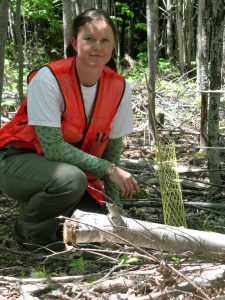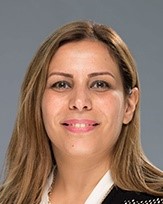Master of Science in Forest Resources
 Students earning a M.S. in Forest Resources are expected to complete a thesis on original research that can be submitted to a journal for publication.
Students earning a M.S. in Forest Resources are expected to complete a thesis on original research that can be submitted to a journal for publication.
Admissions:
Applications and admission is handled by the Graduate School.
Recommendations for admission are made by the School of Forest Resources based on academic records, quality of statement of purpose (SOP), experience, and recommendations.
The School of Forest Resources receives and evaluates graduate student applications on a rolling basis. Students can be admitted to our graduate program either in the fall or spring semester each year. International students are recommended to consider the required time needed for visa application when applying to our graduate programs.
Applicants are highly encouraged to contact the SFR faculty with research interest matching their intended field of study before submitting their applications. Application materials include the graduate school form, transcripts, 3 letters of recommendation and English scores (for international applicants only). Please see here for the Graduate School English score requirements.
Program Requirements:
1) Form an Advisory Committee: The Master’s Degree Advisory Committee is made up of at least three graduate faculty members, one of whom is preferred to be outside the student’s discipline.
2) Course Requirements: Course requirements for an M.S. in Forest Resources are established by the Advisory Committee and must meet the following requirements: a) A minimum of 30 credits (coursework plus thesis) is required. b) A minimum of 12 hours (exclusive of thesis) of 500- and 600- level courses must be included. SFR-521: Research Methods in Forest Resources (3 credits) is required. for all students and satisfies the responsible conduct of research (RCR) requirement of the Graduate School. c) Must have at least six (6) and no more than fifteen (15) hours of thesis credits and d) 1 credit of graduate seminar course is required.
3) Thesis: The student must complete an original research project and write a thesis. The Advisory Committee must approve the thesis topic and study plan before research can begin.
4) Final Examination: A final oral exam covering the student’ thesis and related degree work will be scheduled following tentative approval of the thesis by the Advisory Committee. The final examination committee is usually the Advisory Committee and is selected by the graduate advisor. The vote of the Advisory Committee must be unanimous for the student to pass the examination.
Fees and Expenses:
Tuition varies with residency. Financial aid assistance may be available.
Assistantships:
All applications may be considered for the several teaching and research assistantships available each year. Check for currently available assistantships.
For more info or questions, contact:
Parinaz Rahimzadeh-Bajgiran, Graduate Coordinator
215 Nutting Hall
Nutting Hall
University of Maine
Orono, ME 04469-5755
email: parinaz.rahimzadeh@maine.edu

